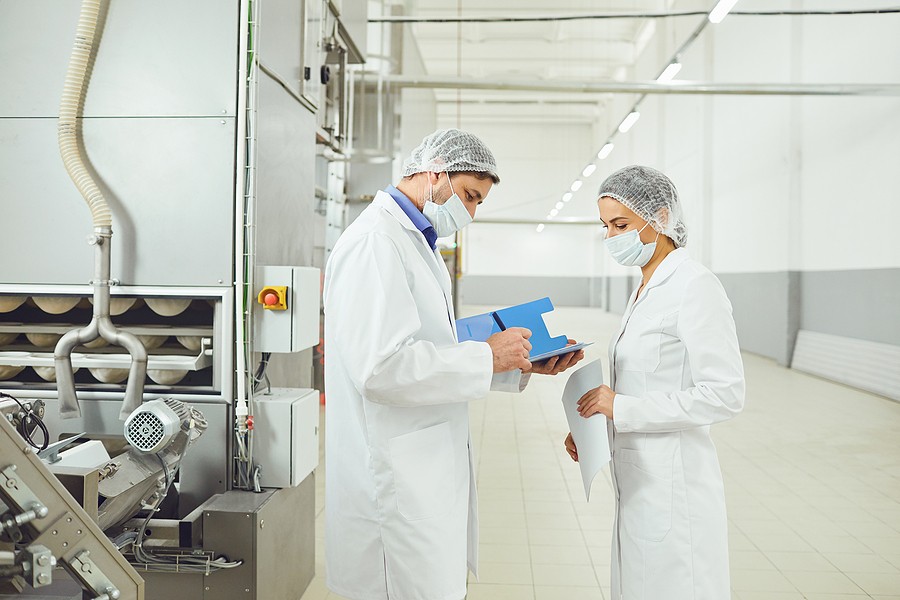
The food manufacturing industry is a vast and dynamic sector with abundant opportunities for innovation and growth. This article explores the various pathways to unlock potential within this essential industry.
In today’s fast-paced world, technology serves as the cornerstone for driving efficiency and productivity within the food manufacturing industry. The incorporation of advanced machinery, automation, and AI-powered solutions is transforming traditional manufacturing practices.
Automation, for example, allows for continuous production lines with minimal human intervention, significantly reducing labor costs and time. Moreover, AI-driven systems can optimize supply chain management, forecast demand with greater accuracy, and reduce waste by analyzing large datasets. While technology integration requires substantial upfront investments, the long-term benefits of enhanced efficiency and cost savings make it a pivotal area for companies aiming for growth and competitiveness.
Additionally, advancements in biotechnology are enabling the development of healthier and more sustainable food options, meeting the increased consumer demand for nutritious and environmentally-friendly products. By embracing these technological advancements, food manufacturers can not only improve their operational efficiencies but also meet the ever-evolving consumer expectations.
Research and development (R&D) play an essential role in the food manufacturing industry by driving innovation and ensuring long-term sustainability. Through R&D, companies can create new and improved food products that address changing consumer preferences, such as organic, gluten-free, or plant-based options. Innovation in food processing techniques, packaging materials, and preservation methods can also lead to healthier, safer, and more environmentally responsible offerings. Furthermore, R&D departments can explore the potential of emerging food technologies, such as lab-grown meats and alternative proteins, which have the potential to revolutionize the industry. By investing in R&D, food manufacturers can stay ahead of the competition, respond effectively to market trends, and contribute to solving global challenges such as food security and environmental sustainability. The collaboration between food scientists, technologists, and industry leaders is vital in creating a comprehensive innovation strategy that can pave the way for breakthrough products and processes.
Sustainability is no longer a niche consideration but a crucial aspect of modern food manufacturing. Consumers are increasingly aware of the environmental impact of their food choices and demanding more sustainable options. For food manufacturers, this means adopting practices that reduce their environmental footprint, such as minimizing waste, improving energy efficiency, and sourcing raw materials responsibly. Implementing sustainable practices can not only enhance a company’s brand reputation but also lead to cost savings and operational improvements. For instance, using renewable energy sources or recycling waste materials can significantly reduce operational costs. Furthermore, sustainability initiatives such as reducing plastic packaging or implementing circular economy principles can align with global sustainability goals and regulations. By embracing sustainability, food manufacturers can ensure their long-term resilience and ability to meet future market demands. The shift towards sustainability is not just a trend but a necessary evolution for the industry, contributing to the well-being of the planet and future generations.
Food safety and quality assurance are fundamental to the success and reputation of food manufacturing companies. Ensuring that products are safe, high-quality, and comply with regulatory standards is paramount. Food safety can be maintained through meticulous hygiene practices, regular inspections, and adherence to internationally recognized standards such as Hazard Analysis and Critical Control Points (HACCP). Quality assurance, on the other hand, involves systematic processes for testing and validating food products to meet consistency and quality criteria. Investments in state-of-the-art testing facilities and quality management systems are critical for identifying potential hazards and ensuring product safety. In addition, comprehensive employee training in food safety protocols is essential for maintaining high standards. By prioritizing food safety and quality assurance, manufacturers can protect their consumers, brand’s reputation, and reduce the risk of costly recalls. Innovations in traceability and blockchain technology can further enhance transparency and trust in the supply chain, allowing consumers to trace the journey of their food from farm to table.
A skilled and knowledgeable workforce is indispensable for driving the food manufacturing industry forward. As technology and processes evolve, continuous workforce development and training become essential. Investing in employee training programs can enhance technical skills, improve productivity, and foster innovation. This can be achieved through various methods such as on-the-job training, workshops, certification programs, and partnerships with educational institutions. For example, training employees in the latest technological tools and quality management systems can significantly improve operational efficiency. Furthermore, fostering a culture of continuous improvement and professional development can lead to higher employee satisfaction and retention. Recognizing the importance of soft skills, such as teamwork and communication, is also crucial for fostering a collaborative work environment. By supporting workforce development, companies can build a robust talent pipeline, capable of adapting to industry advancements and maintaining a competitive edge. Investing in human capital ultimately translates to better performance, higher quality products, and sustained industry growth.
The food manufacturing industry is poised for remarkable advancements and growth. By leveraging technology, fostering innovation, prioritizing sustainability, ensuring food safety, and investing in workforce development, companies can unlock tremendous potential and drive the industry forward into a prosperous future.